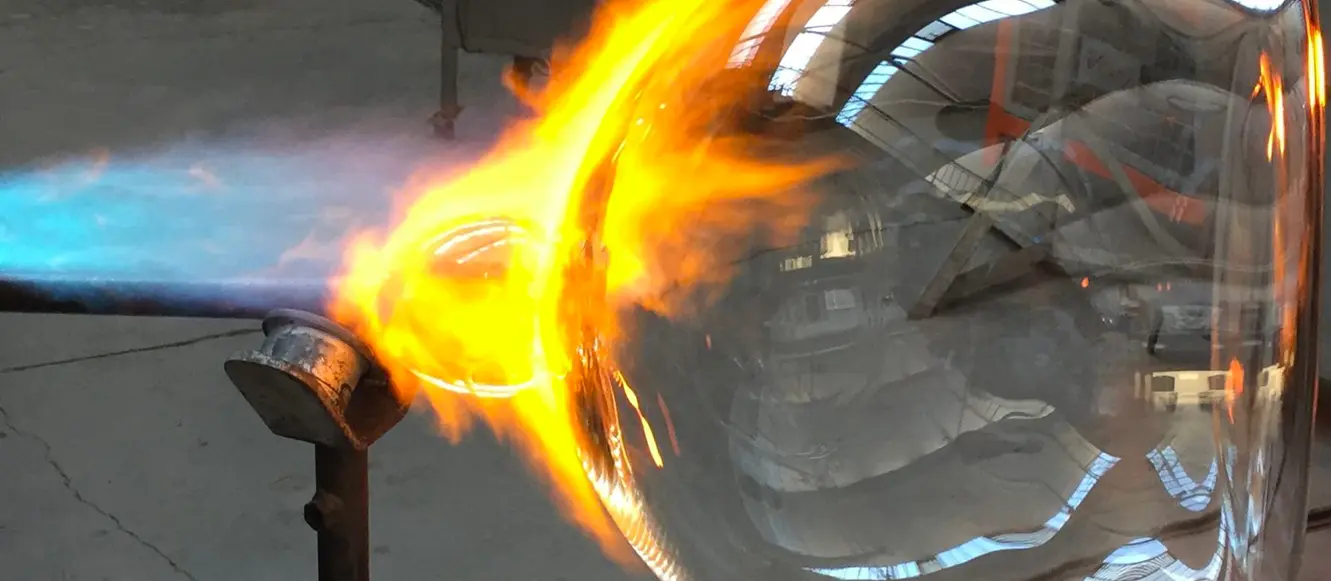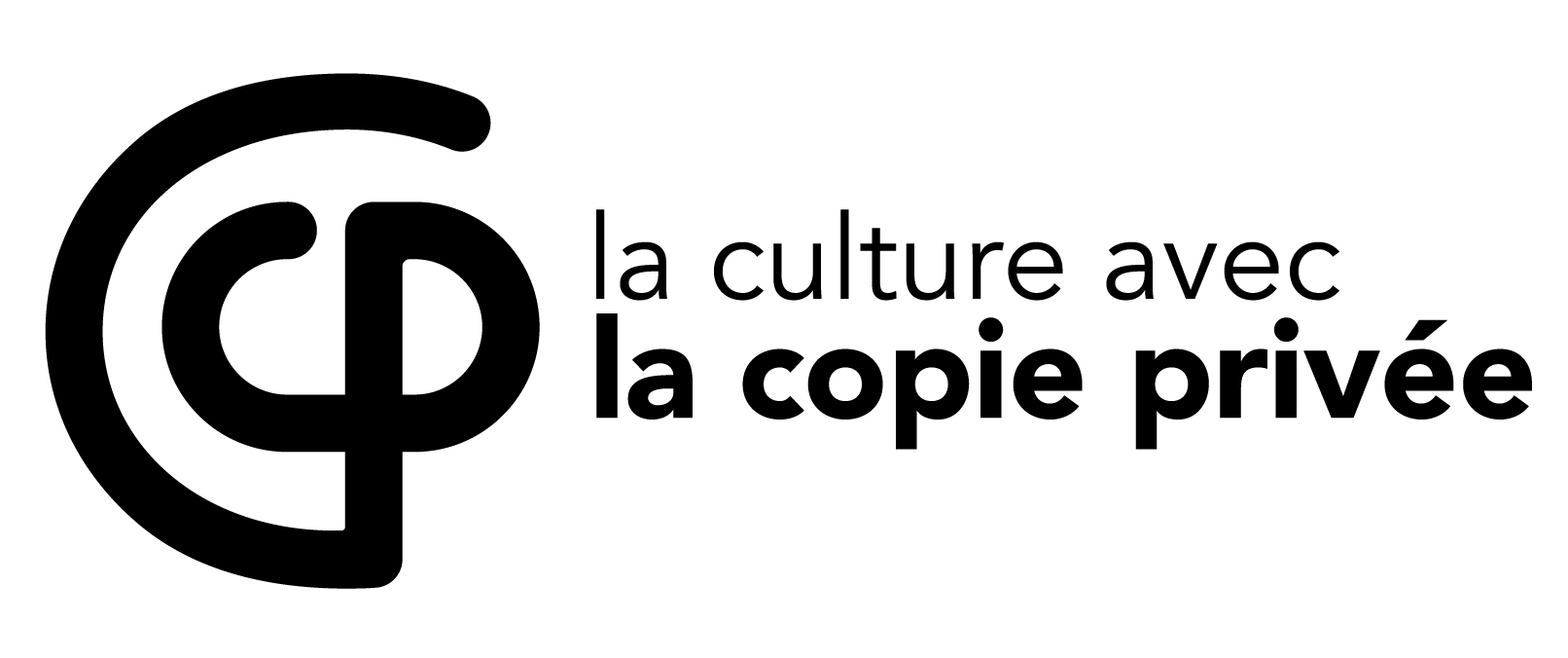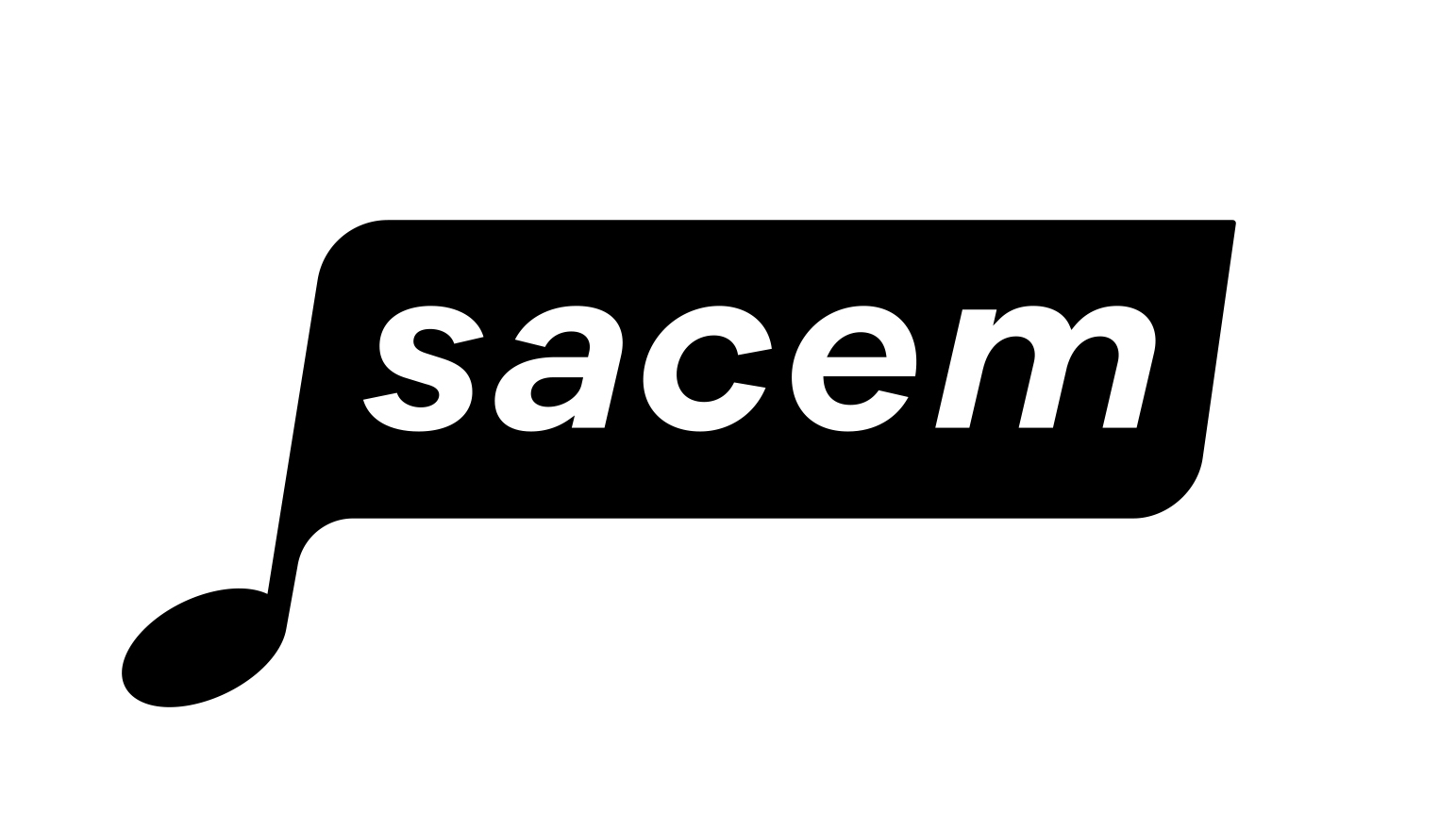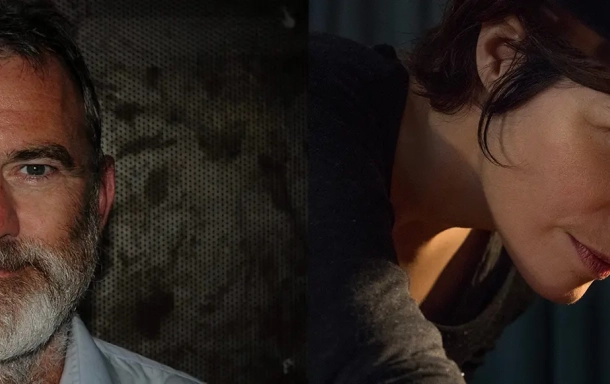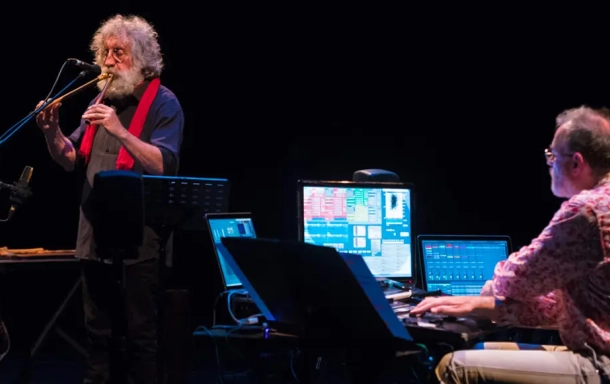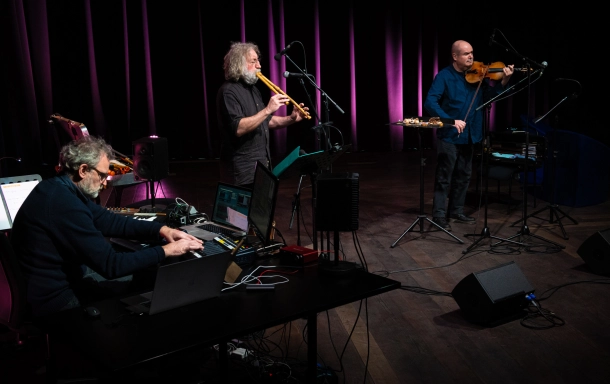From 2018 to 2020, Christian Sebille, composer and sound artist, has been invited in residence by the International Research Center for Glass and Plastic Arts - Cirva. The art center in the Joliette district is internationally renowned for the collaborations it engages in between glass artisans and artists. By nature oriented towards the creation of plastic forms (Pierre Huyghe, François Morellet, Pierre Soulages...), the collaboration has taken a new turn here by investing glass as a sound object.
After a research on shapes and their acoustic signatures - balloons, bowls, cymbals, saucers or rods... broken, bell-shaped, hollow or sandblasted... - Christian Sebille developed a project of glass orchestra and immersive sound installation. In this research, glass is both an instrument and a membrane of acoustic diffusion. Each blown form, by definition unique, releases a singular sound wave, looped, transformed and propagated by glass speakers.
The creation was presented to the public under the double form of an electronic piece played in performance by Christian Sebille in company of the percussionist Philippe Foch, protean and subtle musician, and of an immersive installation acted by generative mechanics.
Paysage de propagations brings together a multidisciplinary team: glass blowers, philosopher, composer, musicians, mechanical designers and computer music director.
-
During his life as a composer, the ideas developed by Christian Sebille have often found their depth through the realization of series.
The series Villes imaginées (7 pieces for voice, instruments and electronics) or Miniatures (13 musical and sound installations) already responded to a will to dig a furrow and to deepen a personal artistic research by declining a play of formal differences.
Following this same creative logic, Paysage de propagations has become a series of which each variation has a number and a subtitle:
> Landscape #0 "Han-naH inside/outside
Plastic installation of a room equipped with a transducer that broadcasts texts by Hannah Arendt mixed with a vibraphone (Alex Grillo) and electronic (Christian Sebille) improvisation
Presented as part of the exhibition "Disobey orders, save the artists" from August 30, 2020 to January 30, 2021.
Commissioned by the American Gallery in Marseille.
> Landscape #1 "Matrix
Installation with video presented in May 2021 at the GMEM Module in its generic form: the exploration of a glass orchestra, the glass forms being in turn sound producers and membranes of diffusion of resonances, transformed or not.
"We are in an enclosed space where the glass pieces, awakened by enslaved mechanisms, propagate their sound identity. The lights sweep the space. Nothing seems fixed. Ten tables present unique pieces, inert, until the action of the striker. The breath of the glass artists is extended by the sound. The material goes from solid to vibrating, from frozen breath to its resounding expansion. The sounds propagate in the space, mix between their zones of propagation. The flashes of light and the layers of colors, in counterpoint, blur the marks.
After a time of observation, you stroll in search of mechanisms. Striking ogives or basins, long rods or cymbals tapped or rubbed, vibrating bands of light... after the first astonishment, it is the search for the comprehension of the device which is imposed. Where do the phenomena come from? Then the bubbles of luminous or sound spectra, the axes of dialogues and the traces of frequencies appear. The games between the families of sounds - wood, metal, stone - question and challenge each other. The movements of the resonances require the immobility of the listener and his observation. You decide to be inside the small world. A derisory and ironic link is established between you and the cosmos. You are in a decided place of your listening, in a place of the orchestra, close to what is strong, far from the distant" - Christian Sebille.
>Paysage #2.1 - Performance:
Performance from some glass pieces by Philippe Foch (percussion) and Christian Sebille (live electronics).
During the two years from 2018 in residence at the International Research Center for Glass and Plastic Arts - Cirva, to develop blown pieces dedicated to sound research, Christian Sebille did not fail to take advantage of his complicity with the percussionist Philippe Foch. Together, they began a research project on the resonance of glass pieces. The workshops during which they tamed these unheard of instruments finally gave rise to the idea of a performance in the cycle Paysage de propagations. Philippe Foch uses his gestural dexterity and sensuality to extract new sounds, while Christian Sebille takes hold of the sound material to transform it in real time and restore it. A duo of electronic and acoustic improvisation that relies on the poetics of objects to extend the trajectory of the crystallized breaths of the glass artists and create a small, derisory and living sound cosmology.
> Landscape #2.2 - Performance / installation :
From the indeterminate to the determinate.
Christian Sebille proposed to Philippe Foch to extend the initial performance and to introduce an electromechanical device. This new proposal of the series is based on musical notionsnotions that intertwine...
The performance begins with an acoustic improvisation on the an acoustic improvisation on the glass instrumentarium and gradually moves towards a totally determined mechanical mechanical installation totally determined by the by the writing. The play of the percussionist is organizedthe insertion of rhythmic models composed and played by the rhythmic models composed and played by the percussionists controlled by the computer. The responses to the rhythmic models to the rhythmic models give way to more and more complex formulas. more and more complex formulas.
From improvisation to writing.
This piece goes from an improvised state to a totally written.
From human presence to mechanics.
The performance begins with a phase eninstrumental phase to end up in a mechanical and mechanical and electroacoustic installation. In gradually fading away at the end of the performance, Philippe Foch lets the traces of his performance resound.
From acoustics to electroacoustics.
The state of the sound production is enriched by the presence of of the electroacoustic transformation, passing from an instrumental music to an autonomous andautonomous and enslaved device. It is a progressive metamorphosis during during which these four concepts are entangled to to create a complex evolution of a state of musical profrom a state of musical production played by the human to a mechanical state.
> Landscape #3 "Fusion
Installation with video. Put in space and image by Francisco Ruiz De Infante (plastic artist).
" A space... A mechanical and organic pre-square at the same time. An incandescent desire to master the beautiful disorder of some fossilized breaths in transparent balls. The word "disorder", for some, evokes a domestic nightmare. It suits us; it also reassures us, because any order can easily become frightening. Order is scary because it attracts us with the same force that disorder carries us. If we exist and if a space vibrates, it is probably because of these comings and goings.
How to build an archaeology in transition? A fragile potential which, amplified by the resonance of some transparent skins and some memories of the fire, can compose an enigmatic space-time with which to vibrate?
Here are improbable forms generated thanks to the desires of sound! Here are the hammers to provoke the reaction of the fossilized air in the air of the present! Here are the shadows to explain almost invisible movements! And here are also the scanners to illuminate, underline and hide these vitrified breaths. And here are these mechanical glances which sweep the transparencies and the bodies. These glances that, while looking at everything, see nothing... to better let the orchestra hear." - Francisco Ruiz De Infante
*Disorder, by Jean-Claude Carrière, 2012, Éd. André Versaille
> Landscape #4 "Filters and Resonances
Piece for six solo voices (Ensemble Les Métaboles), one percussionist (Multilatérale) and electronics, broadcast on glass vessels based on Christophe Tarkos' text - Le petit bidon (création 2022).
Paysage #4 uses spectral analysis of the glass vessels to define a non-tonal temperament that will serve as a scale for the singers. In this way, the resonances of each piece respond to one another, graze one another and combine, linked by electronic transformations.
A landscape is thus created between the sound reality of the glass, its extended vibration and the articulated voices.
Delegated production
GMEM - Centre national de création musicale and Cirva, Centre international de recherche sur le verre et les arts plastiques
Partnership
Saint-Ex, Digital Culture - Reims
Development of mechanical and computer devices
Sonopopée Collective
Winner
of the device for multimedia and digital artistic creation (DICRéAM)
Support
La Sacem ; Onda ; Maison de la Musique Contemporaine (MMC)
Acknowledgements
Reso-nance & Fablab lfo; Cirva team: Stanislas Colodiet, Huguette Epinat, Bérangère Huguet, Carlo Maria Marangoni, Valérie Olléon, Cyrille Rocherieux, Fernando Torre, David Veis
Writing commission
Paysage #2.2
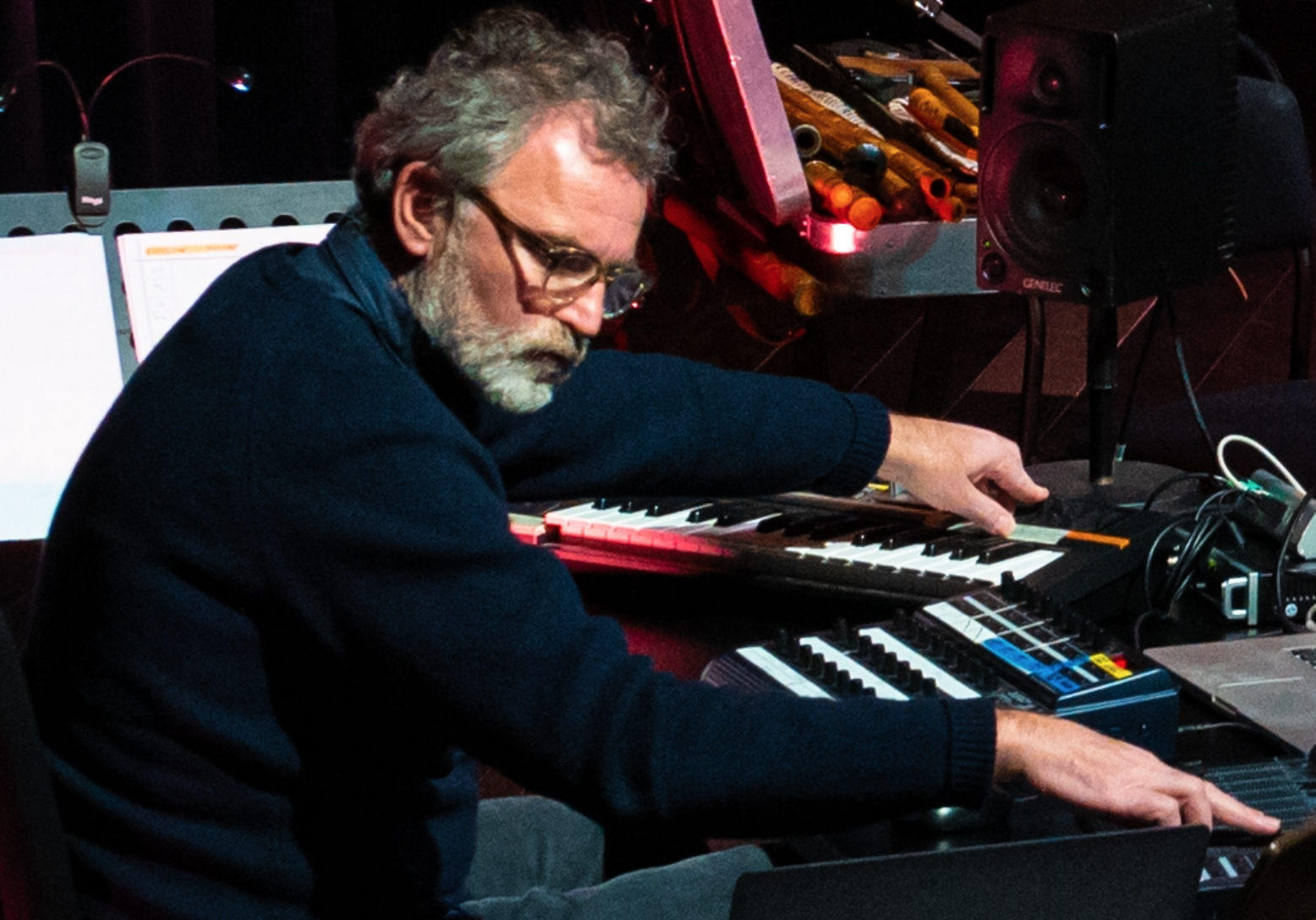
Christian Sebille is a composer and artistic director of the GMEM in Marseille. He works on the realization of sound installations in situ, in particular within the framework of a series entitled Miniatures. The place of sound capture is linked to the place of its diffusion in a ratio of space compression (reduction of the diffusion space in relation to the capture space) and temporal reduction (ratio of capture time / diffusion time). Moreover, he works on the concrete sound and on the capacity of the material to be in itself its own diffuser (the instrumental object). The radiation of the material and the movement of the object (sound) play with each other.
Christian Sebille
design and composition
Francisco Ruiz de Infante
plastic surgeon
Maxime Lance, Vivien Trelcat and Nicolas Canot
Collectif artistique Sonopopée
mechanical and digital generative device
Cirva team
production and realization of glass
Matthieu Girard
wood and metal builder
Benoit Fremaux
wood and metal builder, stage manager
Damien Ripoll
general, IT and sound manager
Propagation landscape #1 "Matrix
September 9 to 24, 2023 - Musica festival, CEAAC, Strasbourg (67)
May 3 to 14, 2023 - festival Propagations, GMEM, Marseille (13)
July 19 to August 29, 2021 - festival (((Interférence_s))) du Centre Wallonie-Bruxelles/Paris (75)
Propagation landscape #1.2 "Matrix / Performance"
January 14 to April 4, 2025 - Théâtre de Privas, Privas (07)
February 19 to March 3, 2024 - Cité musicale-Metz (57)
Performance Thursday February 22 at 6:30pm - Cité musicale-Metz (Église Saint-Pierre-aux-Nonnains), Metz (57)
Paysage de propagations #2 "Performance
July 8, 2021 - (((Interférence_s))) festival at Centre Wallonie-Bruxelles/Paris (75)
Paysage de propagations #2.2 "Performance / installation
November 30 to December 3, 2022 - festival Instants Fertiles#10, Saint-Nazaire (44)
March 30 to April 3, 2022 - festival Magnifique Avant-Garde, Reims (51)
March 24, 2022 - festival Electrocution 2022, Brest (29)
Landscape #3 "Fusion
January 14 to April 4, 2025 - Théâtre de Privas, Privas (07)
June 1 to 12, 2022 - La Criée - Théâtre national de Marseille, Marseille (13)
RESIDENCES
2022
January 4 to 11 - GMEM, Marseille
February 25 to March 6 - GMEM, Marseille
March 14 to 16 - GMEM, Marseille

